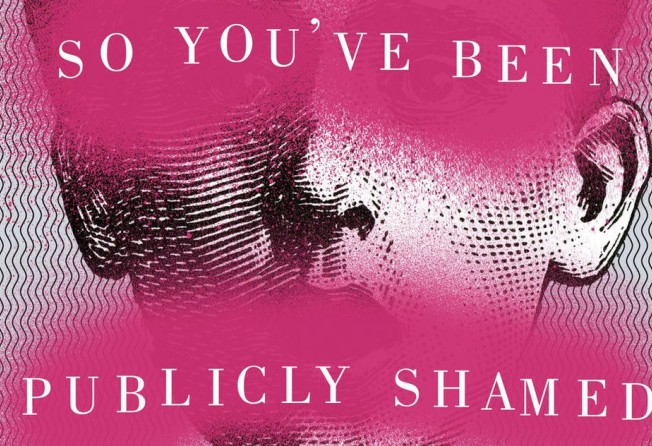
by Jon Ronson
Riverhead Books




"Pop", for better or worse, has become its own genre of non-fiction. As in the music world, the appeal spans nearly every age and aptitude, a free-for-all that breaks down core, often complicated concepts into bite-sized form for easy reader digestion. It doesn't always work, of course.
Alain de Botton made a name for himself with his charming pop philosophy, but more recent works have descended into pretension. Richard Dawkins' science-based volumes can be appealing, but his fundamentalist-like promotion of atheism often cancels out their worth. And journalist Jon Ronson, whose investigative psychology books can be fascinating, is unfortunately never an authority on his subjects, his only real proficiency being a skilled interviewer.
His latest, So You've Been Publicly Shamed, explores the psychological ramifications of internet-based disgracing. It's a thoroughly modern concept, but one that's deeply rooted in history - you only have to look at the medieval stocks where victims were displayed for public humiliation. The author compares these archaic methods with what he feels are contemporary forms: largely anonymous attacks on Twitter, trashy News of the World-style "investigative journalism", and troll-heavy sites such as 4Chan.
Through a collection of probing interviews with those who have shamed and those who've been shamed, Ronson balances such recent public disgraces as Jonah Lehrer (the pop-science liar) and Justine Sacco (racist "Aids in Africa" tweet), against minor scandals that for a few seconds took the internet by storm.
Extended asides occasionally delve into the history of social contagion - how group mentality can easily spread through crowds, and the ways in which it affects various classes - and all of it tied loosely together with the author's trademark British musings and unqualified conclusions.
In his previous books, which tackled the hazy worlds of extremists, military psychics and psychopaths, these personal anecdotes were funny and sometimes admirable in their sheer absurdity. But here, where there are clear-cut and wholly defined examples of how modern shaming can ruin lives and the ways in which contagion spreads, it all comes off as arrogant.
It's not that Ronson judges any of his controversial figures or situations; it's just that he is trying so hard to grow as an objective author, to find a middle ground where he's half-journalist, half-psychologist, that he ends up being neither. Ronson never finds his true footing in So You've Been Publicly Shamed.
Ironically, just days before the book was to be officially released, Ronson faced his own minor shaming: uncorrected proof editions included an eventually edited line comparing women being raped to men being fired.